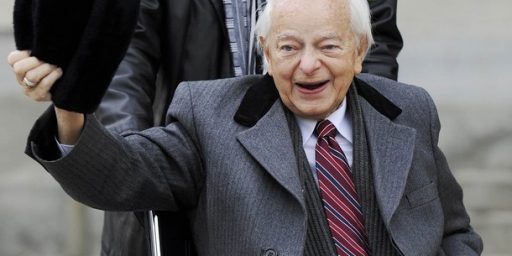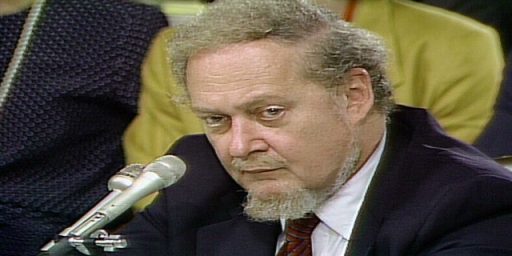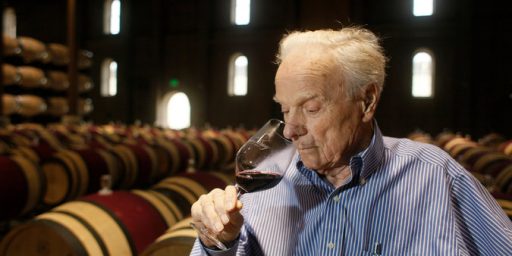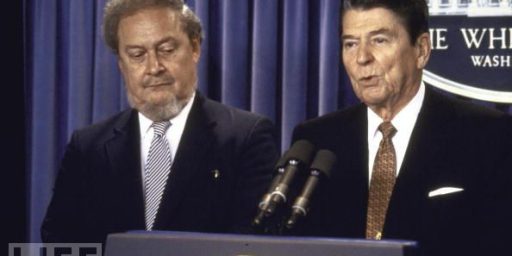Iraq Curfew Works, Violence Ebbs
Robert Worth reports that violence was down sharply today in Iraq, as a curfew kept people off the streets and gave leaders a chance to cool things down.
With the streets of the capital and other major cities largely emptied by an extraordinary daytime curfew, imams across Iraq called today for an end to the sectarian rioting that has left more than 170 people dead since Wednesday, and political leaders held emergency meetings to contain the crisis.
The curfew and a heavy street presence by Iraqi Army soldiers appeared to have blunted much of the violence that broke out after a bomb shattered the golden dome of one of Iraq’s most sacred Shiite shrines on Wednesday in Samarra. Some clashes continued, with at least 29 bodies turning up in Baghdad, though most of the Shiite militia fighters who led retaliations after the shrine attack seemed to have melted away.
But Iraqi leaders and American officials seemed acutely aware that the violence in which dozens of Sunni mosques were attacked and damaged could still push Iraq into a catastrophic civil war. And in their Friday sermons and public statements, political and clerical leaders betrayed an ominous polarization of attitudes about who was at fault in the recent violence, along with a renewed hostility to the American role in Iraq on both sides of the sectarian divide.
At an emergency meeting today, representatives of all Iraq’s major political groups agreed to form an advisory committee with the participation of the American command to deal with the crisis. “Everything that needs to be done must be done to avoid a civil war, and I think they are keenly aware of the danger,” said Zalmay Khalilzad, the American ambassador, who took part in the meeting.
Mr. Khalilzad said the American military increased its patrols in mixed Sunni-Shiite areas, in a possible sign that the American command is concerned about the ability of the Iraqi Army and police to prevent further violence after the curfew lifts. The Iraqi police whose ranks include many followers of Shiite militias largely stood by during the attacks on Sunni mosques Wednesday and Thursday.
The introductory part of this is good news, at least in relative terms. The last sentence, though, points to a very real concern: that the security forces are more loyal to their sect than their country.






I’m hereby predicting that this mosque bombing will be looked back on as the first significant event in the Iraqi Civil War. It’s not a matter of ‘if’; it’s not even a matter of ‘when’ anymore. I believe it’s already Game On.
“no one could have foreseen that there would be a civil war”
Heck-of-a-job!
It makes you wonder why they don’t just put the place under permanent curfew. That way we could get out of there in a matter of weeks!
We could sell it to the Iraqis as a holiday treat–like a year-long Ramadan!